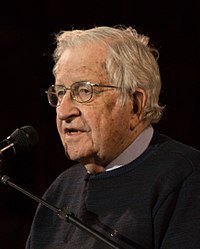Introduction to Psychology 1/IPSY101/History/Cognitive revolution
| “ | Most of our oldest memories are the product of repeated rehearsal and reconstruction. | ” |
| —Ulric Neisser | ||
Behaviourism’s emphasis on objectivity and focus on external behaviour had pulled psychologists’ attention away from the mind for a prolonged period of time. The early work of the humanistic psychologists redirected attention to the individual human as a whole, and as a conscious and self-aware being. By the 1950s, new disciplinary perspectives in linguistics, neuroscience, and computer science were emerging, and these areas revived interest in the mind as a focus of scientific inquiry.
This particular perspective has come to be known as the cognitive revolution (Miller, 2003[1]). By 1967, Ulric Neisser published the first textbook entitled Cognitive Psychology, which served as a core text in cognitive psychology courses around the country (Thorne & Henley, 2005[2]). Although no one person is entirely responsible for starting the cognitive revolution, Noam Chomsky was very influential in the early days of this movement. Chomsky (1928–), an American linguist, was dissatisfied with the influence that behaviourism had had on psychology. He believed that psychology’s focus on behaviour was short-sighted and that the field had to re-incorporate mental functioning into its purview if it were to offer any meaningful contributions to understanding behaviour (Miller, 2003).
European psychology had never really been as influenced by behaviourism as had American psychology; and thus, the cognitive revolution helped reestablish lines of communication between European psychologists and their American counterparts. Furthermore, psychologists began to cooperate with scientists in other fields, like anthropology, linguistics, computer science, and neuroscience, among others. This interdisciplinary approach often was referred to as the cognitive sciences, and the influence and prominence of this particular perspective resonates in modern-day psychology (Miller, 2003).
References
- Jump up ↑ Miller, G. A. (2003). The cognitive revolution: A historical perspective. Trends in Cognitive Sciences, 7, 141–144.
- Jump up ↑ Thorne, B. M., & Henley, T. B. (2005). Connections in the history and systems of psychology (3rd ed.). Boston, MA: Houghton Mifflin Company.
- Source
- This page was proudly adapted from Psychology published by OpenStax CNX. Oct 31, 2016 under a Creative Commons Attribution 4.0 license. Download for free at http://cnx.org/contents/4abf04bf-93a0-45c3-9cbc-2cefd46e68cc@5.52.


